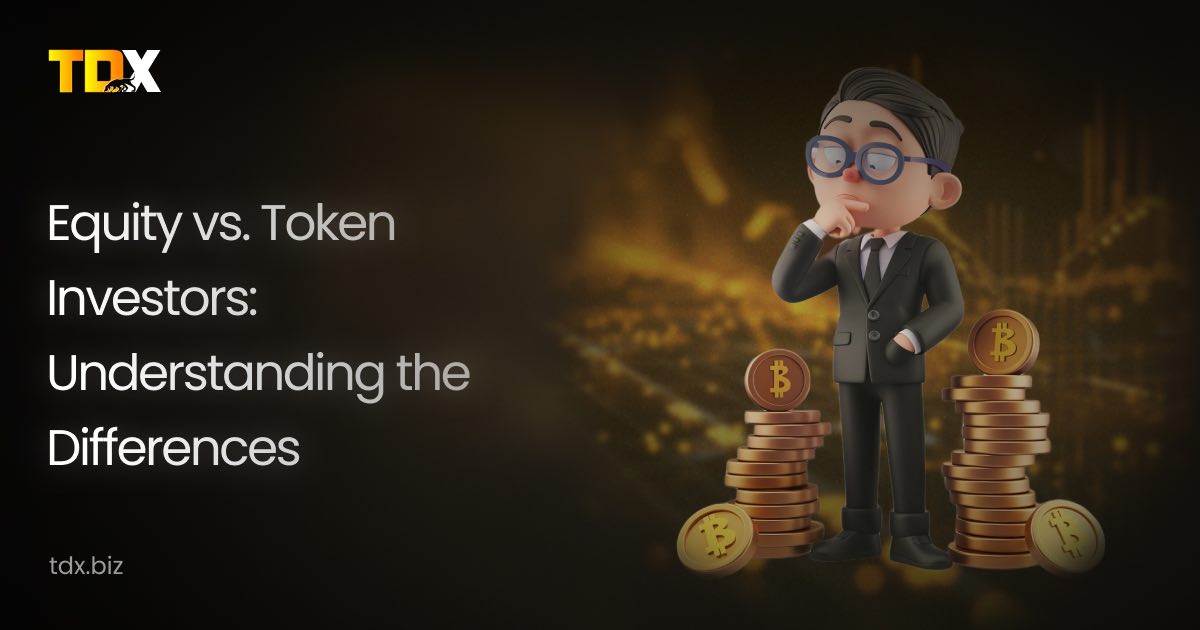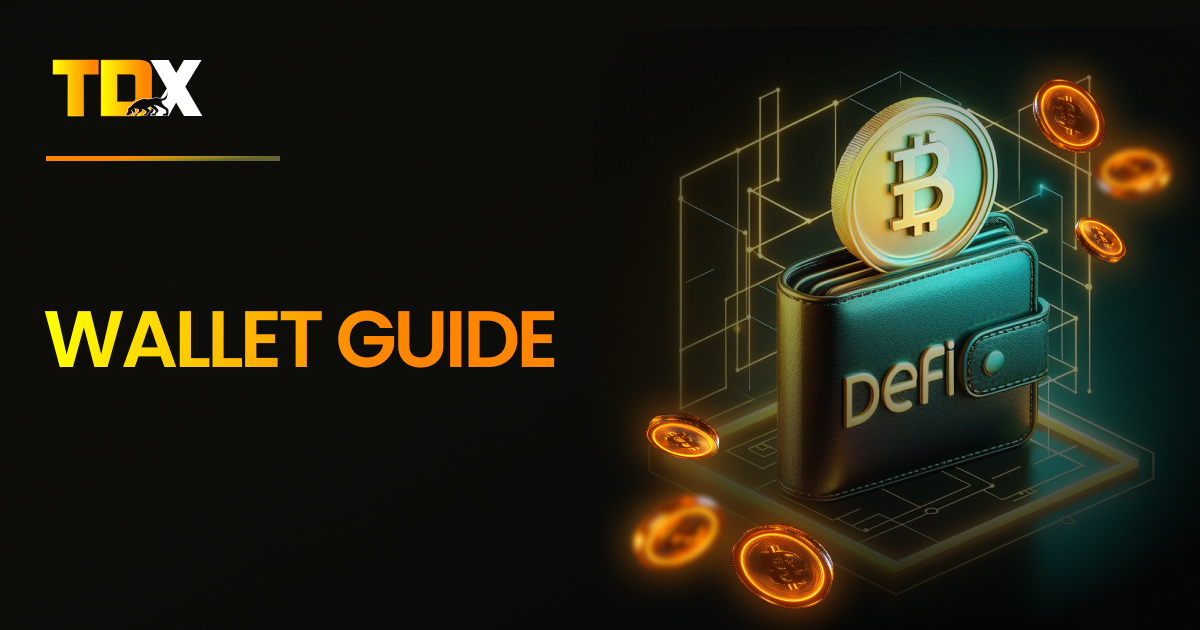 Back to blog
Back to blog


Equity vs. Token Investors: Understanding the Differences
When evaluating equity and token investments, it is crucial to recognize that these methods of distributing value generated by a business operate on fundamentally different principles. Both offer unique opportunities, but they also come with distinct risks and benefits. Let’s explore them in depth.
Traditional Ownership and Control
Equity shares represent ownership in a company. They are dilutable, meaning your percentage of ownership can decrease as the company issues more shares. For instance, if you hold 10% today, this could shrink over time with new share issuances. Despite this dilution, equity shareholders have legal rights, including voting on significant company decisions and receiving dividends.
However, real decision-making power often rests with the board of directors, who are usually major shareholders. This centralization can sometimes lead to collusion among board members, potentially disadvantageous to smaller shareholders.
Key Takeaways:
- Dilution
Share issuance can reduce your ownership percentage. - Legal Rights
Shareholders can vote and receive dividends. - Governance
Major decisions are made by the board, which can lead to potential collisions.
Decentralized Value and Stability
Tokens, in contrast, are non-dilutive. If you hold a certain percentage of tokens, that percentage remains constant regardless of business growth. The value of tokens is driven by supply and demand dynamics. As the demand for tokens increases, their value typically rises. However, complications arise when businesses attempt to raise funds through both equity and tokens simultaneously. It can create confusion about which instrument truly represents the company’s value — a situation that has caused issues in the entire crypto ecosystem.
As companies and startups grow, either tokens or shares will likely dominate. Shareholders, with their legal recognition and decision-making power, might end up sidelining token holders, potentially crashing the token’s value. This can result in significant losses for token holders and negatively impact the broader crypto market.
Key Takeaways:
- Non-Dilutive
Ownership percentages remain stable. - Demand-Driven Value
Token value increases with demand. - Dual-Funding Risks
Combining equity and token fundraising can create confusion and devalue tokens.
Governance: Centralized vs. Decentralized Decision-Making Gover
A key distinction between equity and token investments is governance. In public companies, shareholders vote on major decisions, but the board of directors typically holds the decisive power. This can lead to collusion among board members, disadvantaged minority shareholders — a risk underscored by events like the 2008 financial crisis.
Token-based governance offers a more decentralized model. Anyone holding a token can participate in voting, regardless of their location. This decentralized decision-making process makes collusion much harder. Proof-of-stake mechanisms further enhance governance by putting capital at risk, deterring poor decision-making through potential financial penalties.
Key Takeaways:
Equity Governance
Centralized, with major decisions made by the board.
Token Governance
Decentralized, allowing broader participation and reducing collusion risks.
Proof-of-Stake
Enhances governance by penalizing bad decisions.
Choosing Between Security and Utility Tokens
The type of token chosen is crucial. For businesses focused on profit distribution, security tokens are more appropriate. These tokens are non-dilutive and can offer returns to holders, effectively representing shares on the blockchain. However, the security token market is still young and faces liquidity challenges, with few exchanges facilitating their trading.
Many companies launch utility tokens even when it doesn’t suit their business model, mainly due to liquidity issues with security tokens. Pushing a utility token without a natural use case can hinder a company’s growth and mislead investors.
Takeaways:
Security Tokens
Offering non-dilutive, profit-sharing benefits but face liquidity challenges.
Utility Tokens
This should align with the business model; otherwise, they can mislead investors and limit growth.
Why Does Tokenomics Matter?
Tokenomics is essential because it defines the economic model behind tokens, impacting their value, stability, and functionality. Every decision you make about your token — from its supply and distribution to the incentives for holding or using it — will for sure influence regulatory and legal risks, ownership structures, user experience, and market adoption.
Tokenomics can also direct user behavior, bootstrap network effects, and enable decentralized governance, making it a critical factor in the success and sustainability of a blockchain project. Poorly designed tokenomics can easily lead to misaligned incentives, user attrition, and even project failure, as evidenced by historical collapses in the crypto space. Therefore, understanding and strategically planning tokenomics is vital for creating lasting value and achieving long-term growth.
Directing User Behavior
Source: Messari.io
In traditional tech products, centralized entities control user actions. In blockchain projects, tokenomics guides user behavior through incentives. For instance, Bitcoin incentivizes miners with block rewards, and Curve incentivizes liquidity providers with CRV token rewards. Effective tokenomics aligns user behavior with project goals, deterring undesirable actions and promoting sustainability
Bootstrapping Network Effects
Source: Network effects By Chris Dixon
Network effects are crucial for blockchain projects, just as they are for traditional tech companies like Uber and Airbnb. Tokens help overcome the “cold start problem” by attracting initial users through incentives. This is essential for achieving critical mass and ensuring long-term growth. For example, Filecoin’s tokenomics incentivize both supply-side and demand-side users, promoting network utility and adoption
Enabling User Ownership
Tokens enable a new form of user ownership, aligning the interests of users, contributors, and the project itself. This model fosters community engagement and loyalty, as users have a stake in the project’s success. Unlike traditional equity, which primarily benefits private shareholders, token-based ownership can create a more cooperative and sustainable ecosystem.
Conclusion
Token-based governance can revolutionize corporate governance by decentralizing decision-making. However, the choice between security and utility tokens is critical. Security tokens provide stability and profit-sharing but struggle with liquidity. Utility tokens should only be used when they naturally fit the business model.
Understanding the differences between equity and token investments, their governance structures, and the implications of each type of token is essential for making informed investment decisions and ensuring sustainable growth. Businesses and investors must navigate these waters carefully, considering the current regulatory landscape that tends to favor traditional shareholders.
40,000 readers 🚀 are getting insights with our media
 Read on Medium
Read on Medium 

Article
“Is Ethereum dead?” This is a trending argument that is appearing in various crypto communities and media. Which is not…


Guide
Welcome to the beginner’s guide on Trust Wallet, MetaMask, and Exodus—three most common cryptocurrency wallets for managing your crypto assets….


Article
When Venezuela’s inflation hit 189.8% in 2023 [Central Bank of Venezuela, 2023], Maria’s life savings of 200 million bolivars (enough…


Article
For generations, Indians have trusted one investment: fixed deposits (FDs). If you walk into any Indian household, chances are someone…


